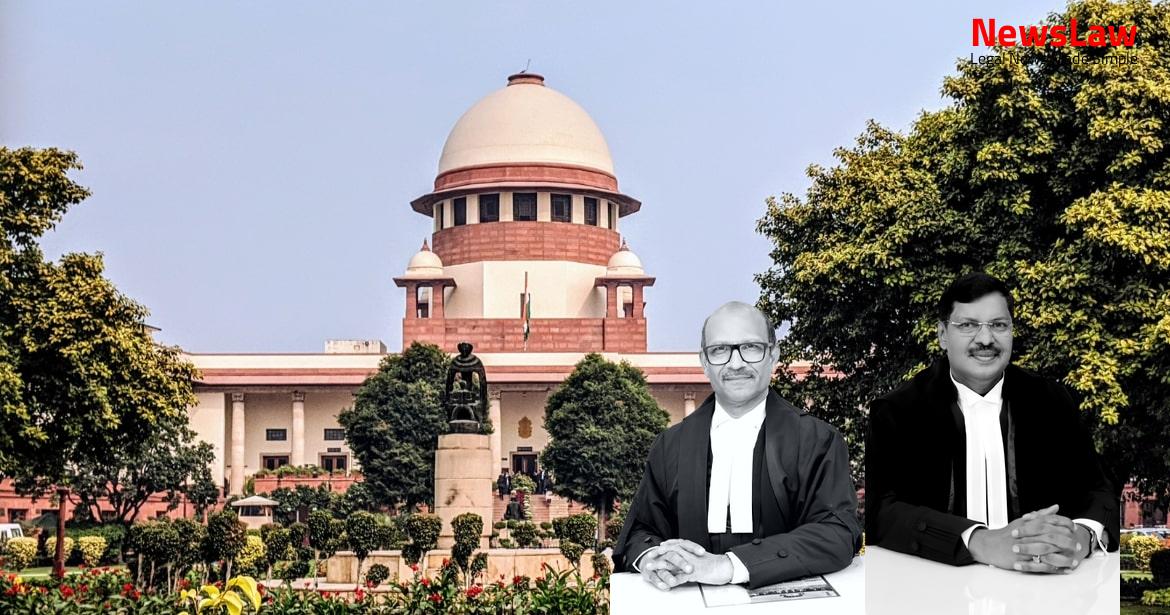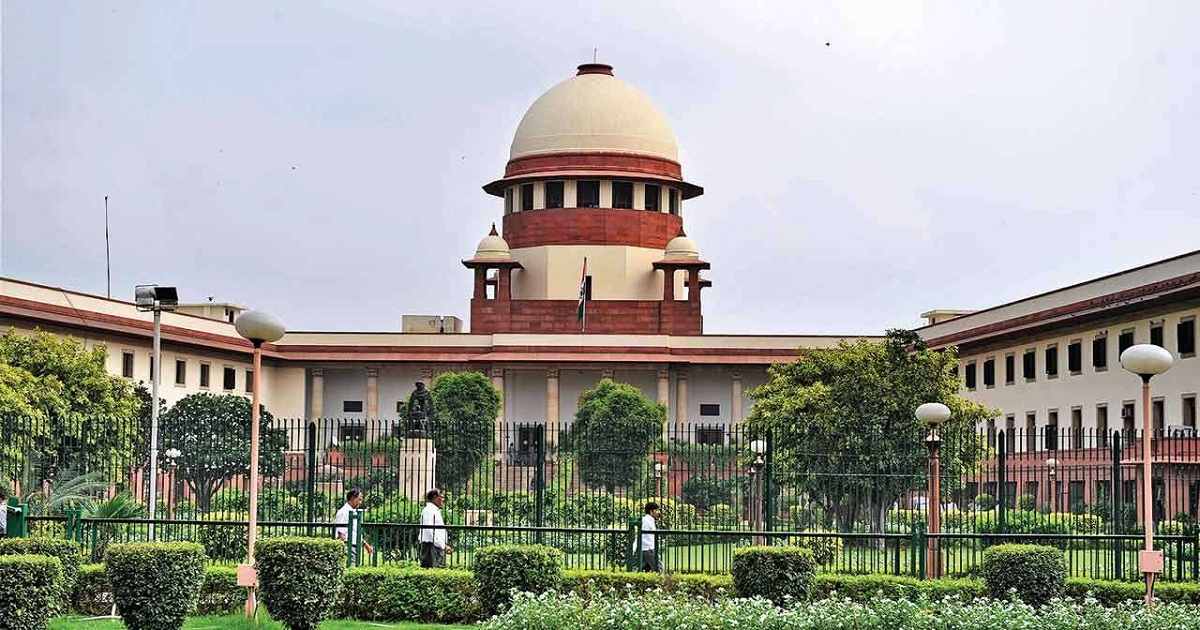In a significant ruling by the Supreme Court of India, the case of Pankaj Bansal vs. State of Delhi delves into the crucial aspect of grounds of arrest and legal rights. The judgment delves into the fundamental rights of the petitioner, Pankaj Bansal, and sheds light on the obligations of the state represented by the respondent, the State of Delhi. Stay tuned to learn more about this pivotal legal case and its implications on arrest procedures and individual liberties.
Facts
- Appellant was presented before the Remand Judge on 4 October, 2023, before 6:00 a.m. as per the remand order.
- Leave was granted for the appeal by special leave on behalf of the appellant.
- The appeal aims to challenge the order dated 13 October, 2023, passed by the Single Judge of the High Court of Delhi.
- Appellant filed Criminal Miscellaneous Case seeking various directions including declaring the arrest as illegal and in violation of fundamental rights.
- The directions sought also included declaring the Remand Order null and void due to alleged constitutional violations and requesting the immediate release of the Appellant.
- The raids were conducted by the officers of PS Special Cell, Lodhi Colony, New Delhi at the residential and official premises of the appellant and the company, M/s.
- The appellant challenged his arrest and custody remand through a Criminal Miscellaneous Case in the High Court of Delhi, which was rejected by a Single Judge
- The appellant’s senior counsel raised submissions questioning the arrest and remand proceedings
- The FIR No. 224 of 2023 is viewed as a second FIR on similar facts to an earlier FIR No. 116 of 2020 concerning FDI regulations violations by the appellant and the company
- The appellant, a Director of PPK Newsclick Studio Pvt. Ltd., was arrested in connection with FIR No. 224 of 2023 for offenses under UAPA and IPC
- Allegations of manipulated remand proceedings and subsequent insertions in the remand order were criticized
- The FIR No. 224 of 2023 was deemed to be based on conjectures and surmises without substantial backing
- The appellant was granted interim protection in an application for anticipatory bail
- The ED registered an ECIR based on the EOW FIR for offenses under PMLA and carried out extensive search and seizure operations at various places including the company’s office
- The appellant was remanded to seven days police custody on October 4, 2023
Also Read: Lumina B and Saneesh vs. Flory Lopez and Ors: Quashing of Criminal Proceedings
Arguments
- ASG argued that the grounds of arrest were set out in the remand application transmitted through WhatsApp to Advocate Shri Arshdeep Khurana.
- ASG argued that the copy of the remand application forwarded over WhatsApp to the counsel gives a complete picture of the grounds of arrest.
- No map was found in possession of the appellant or on his devices till the date of his arrest.
- Appellant was arrested without a clear indication of his connection to the alleged incorrect map of India.
- Alleged inaction of the Investigating Officer in furnishing the grounds of arrest in writing to the appellant cannot be questioned as per Pankaj Bansal case.
- The Investigating Officer has the power to investigate and collect relevant material for filing a charge sheet.
- The arrest of the appellant is in violation of Article 22 of the Constitution of India, hence seeking quashment of the remand order and release from custody.
- The action of the Investigating Officer in arresting and seeking remand of the appellant is alleged to be mala fide and fraught with fraud.
- The remand order was passed without supplying a copy of the grounds of arrest to the appellant or his Advocate, hindering the ability to oppose police custody remand or seek bail.
- The appellant was intentionally deprived of information about the grounds of arrest.
- The grounds of arrest conveyed to the counsel were a narration of facts picked up from the FIR without indicating any specific incident or event.
- The right of the appellant to consult and be defended by a legal practitioner was argued to have been complied with by informing a relative before producing the appellant before the Remand Judge.
- ASG referred to Articles 22(1) and 22(5) of the Constitution of India, pointing out no mandate to convey grounds of arrest in writing to the accused.
- There is a presumption regarding the correctness of acts performed in judicial functions, hence the recording in the remand order about informing the Advocate and conveying grounds of arrest cannot be questioned.
- A new FIR with cooked-up allegations was registered after initial irregularities in arrest and remand, allegedly depriving the appellant of liberty illegally.
- Extensive argument was made on the difference in language between PMLA and UAPA, stating that Pankaj Bansal ruling does not aid the challenge to the remand order.
- The appellant was allegedly not prejudiced by any illegality in arrest or remand since investigation has been completed and charge sheet filed.
- The appellant was remanded to police custody before the remand application was transmitted to his Advocate, rendering subsequent hearings as futile exercises.
- The arrest memo did not adequately indicate the grounds of arrest, and subsequent insertions in the remand order were questionable.
- The appellant was allegedly kept in custody through fraudulent and clandestine methods to circumvent due process of law.
- The appellant’s counsel contended that the FIR and remand application lacked mention of any incident supporting the alleged offenses, indicating victimization.
- It was highlighted that the order on October 4, 2023, had lines added later about sending remand application copy and hearing opportunity, raising doubts.
- The argument about the difference between PMLA Section 19 and UAPA Sections 43A and 43B, referencing Pankaj Bansal case, was emphasized for further analysis.
- The appellant’s counsel urged the court to dismiss the appeal and uphold the Delhi High Court’s order, rejecting the presumption of correctness of judicial proceedings in this case.
- Challenges were raised on the adherence to procedures in the remand order dated October 4, 2023, and the timing discrepancy during the Advocate’s notification, seeking appeal acceptance.
- Disputes arose regarding the applicability of the Pankaj Bansal case judgment due to its timing concerning the appellant’s police remand on October 4, 2023, countering the arguments made by the ASG.
Also Read: Complainant vs. Accused: Supreme Court Judgement on Fraudulent Land Deal
Analysis
- The appellant was presented before the learned Remand Judge at his residence before 6:00 a.m. on 4 October, 2023.
- The Investigating Officer had time till 5:44 p.m. on 4 October, 2023 to produce the appellant before the Magistrate for seeking police custody remand.
- The Advocate for the appellant was informed around 7:00 a.m., as evidenced by call logs.
- There are no significant differences in the language of Section 19(1) of PMLA and Section 43B(1) of UAPA regarding informing the arrested person of the grounds of arrest.
- Communication of the grounds of arrest must be meaningful and in writing, as per the interpretation in the case of Pankaj Bansal.
- The ‘reasons for arrest’ in the arrest memo are formal parameters ensuring proper investigation and preventing further offenses by the accused.
- The appellant objected to the appearance of the remand counsel before the Remand Judge.
- The grounds of arrest were based on several speeches made by the appellant on different occasions.
- The arrest memo did not convey the grounds on which the accused was being arrested.
- Non-compliance with the constitutional requirement and statutory mandate can render custody or detention illegal.
- Section 43C of UAPA states that the provisions of CrPC apply to arrests made under UAPA.
- Failure to communicate grounds of arrest in writing would result in release of the arrested person.
- Any officer arresting a person under section 43A must inform the arrested person of the grounds for arrest.
- The Director, Deputy Director, Assistant Director, or any other authorized officer can arrest a person if they have reason to believe that the person has committed an offense under the UAPA.
- The arrested person must be taken to a Special Court or Judicial Magistrate within twenty-four hours.
- The arrested person has the right to be informed of the grounds of arrest in writing to consult with their advocate, oppose police custody remand, and seek bail.
- Section 19 of the PMLA allows the person arrested to seek bail under certain conditions.
- The person must be aware of the grounds for arrest and the basis for the officer’s ‘reason to believe’ that they are guilty of an offense.
- Communication of grounds of detention to the detenue in writing and in a language he understands is imperative.
- The detenue must have the opportunity to make an effective representation against the detention.
- The constitutional and statutory mandate requires furnishing a copy of written grounds of arrest to the arrested person as a matter of course.
- Various judgments, including a Constitution Bench decision, emphasize the need to communicate grounds of detention in writing to enable the detenue to seek remedial measures against deprivation of liberty.
- The contention that grounds of detention in preventive detention cases need not be provided in writing to the detenue is untenable in the eyes of the law.
- The grounds of arrest are personal to the accused and differ from the general reasons for arrest.
- The remand application was not provided to the accused or his counsel before the remand order was passed.
- This absence of providing the remand application vitiates the arrest and subsequent remand of the appellant.
- The appellant is entitled to be released based on the judgment in the case of Pankaj Bansal.
- The arrest of the appellant, the remand order, and the impugned order by the High Court are declared invalid and quashed.
- Even though the release could have been without requiring bonds, due to the charge sheet being filed, the appellant is directed to furnish bail and bonds to the satisfaction of the trial court for release.
Also Read: Quashing of FIR No. 590 of 2019: Barkat Ali v. State of Chhattisgarh
Decision
- Pending application(s) shall stand disposed of.
- The appeal is allowed.
- The decision applies to the specific part (RPC) of the judgement.
Case Title: PRABIR PURKAYASTHA Vs. STATE (NCT OF DELHI) (2024 INSC 414)
Case Number: Crl.A. No.-002577-002577 – 2024



